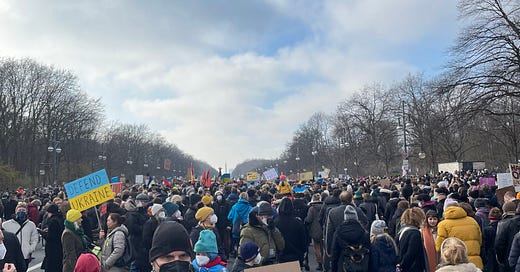**************
Note: The following essay started as an exercise for a German course. I wrote the core of it in German, translated it back in to English, then added and revised quite a bit. I’m sharing the final version with you here.
**************
“A long time ago, I suddenly realized that the country one belongs to is not, as the usual rhetoric goes, th…


